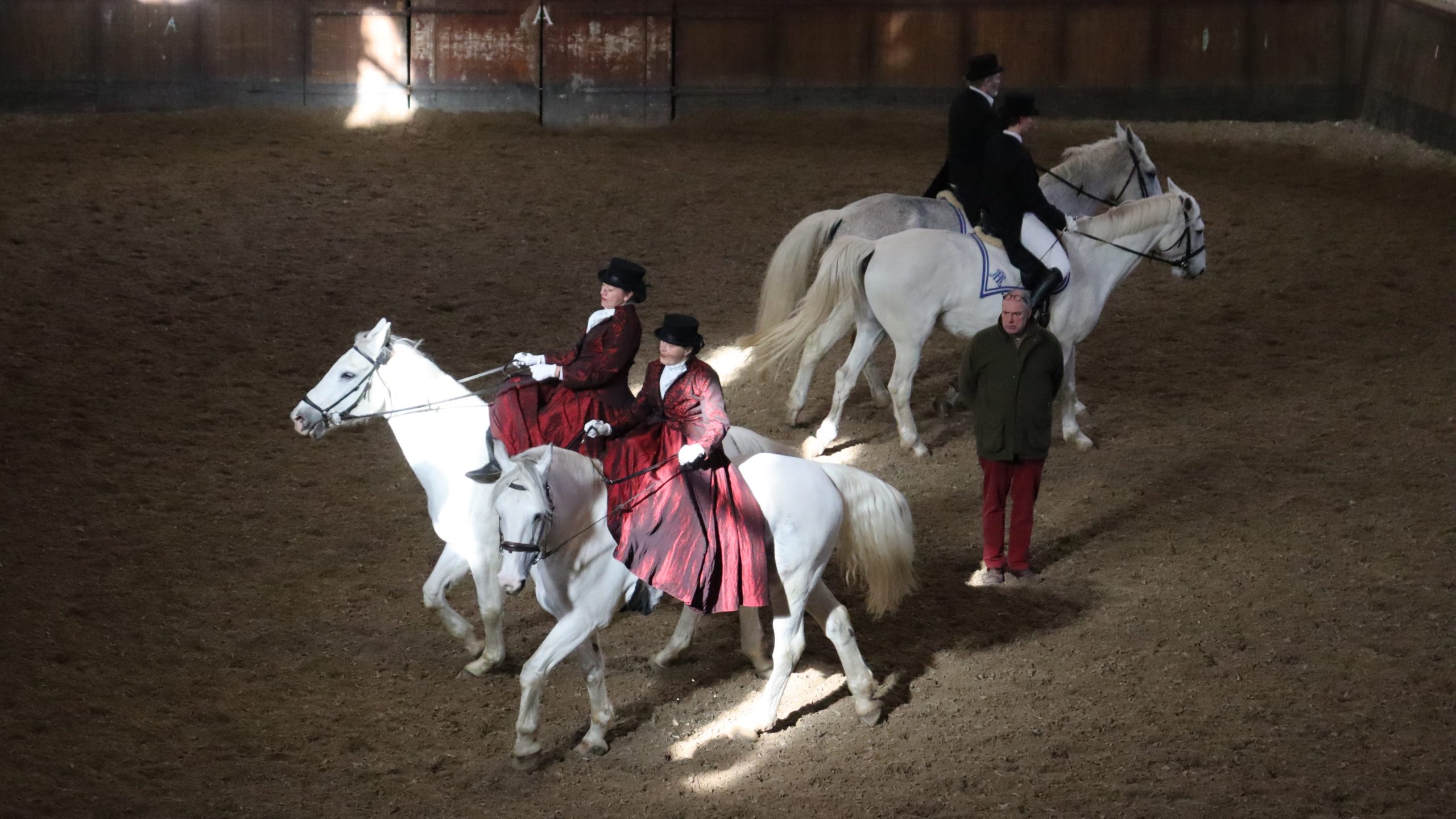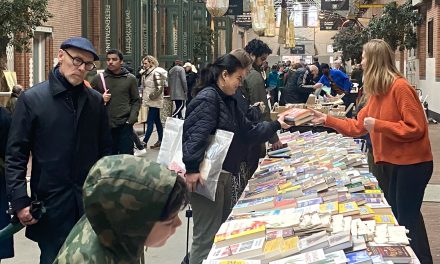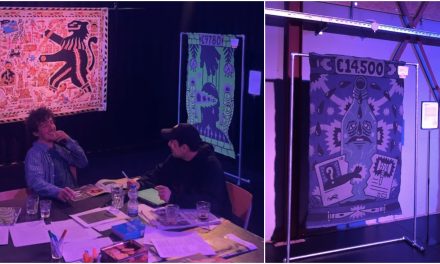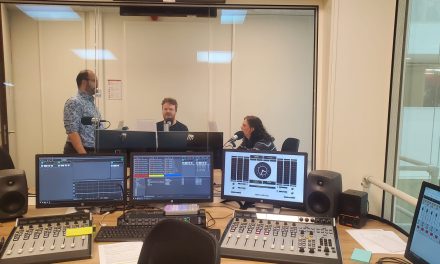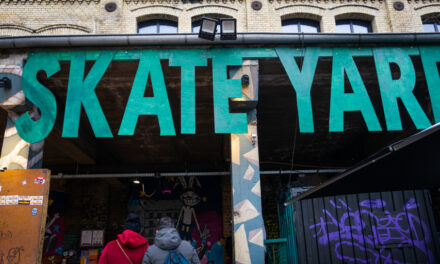Founded in 1744, Hollandsche Manege is the oldest riding school in the Netherlands, dedicated to preserve the national equine heritage. In response to a society increasingly critical of equestrian sports, the Valk family started to host modern art and music events to secure its future. Will this iconic stable be able to preserve its legacy in our changing society?

Riding lesson – historic arena. Camilla Rusmini.
Not always visitors are greeted by the soft neighing of horses and hooves’ sounds. Founded in 1744 and devoted ever since to preserving the national equine heritage, De Manage is securing its future by opening its doors to modern art and music events. Will it transform into a cultural hub or preserve its equestrian legacy?
Preserving traditions
During the week, the stable is busy with children and amateurs taking riding lessons from Justus Valk, instructor and one of four co-owners. On weekends, Vincent Valk, who purchased the stable in 2005, takes care of the Vondel Carousel, a centenary tradition. Dozens of tourists attend the show, astonished by the beauty of white horses galloping in the arena. Women in elegant long skirts hide their legs leaning on only one side of the horse, a technique far more challenging than modern riding.
If he could bring someone from the past to the modern Manege, Vincent would choose one of its earliest instructors, who witnessed the decline of side-saddle riding. His diary, preserved in the museum, notes how by 1993: ”ladies don’t want to use side-saddle anymore, they only want to race in the Vondelpark with gentle saddles”.
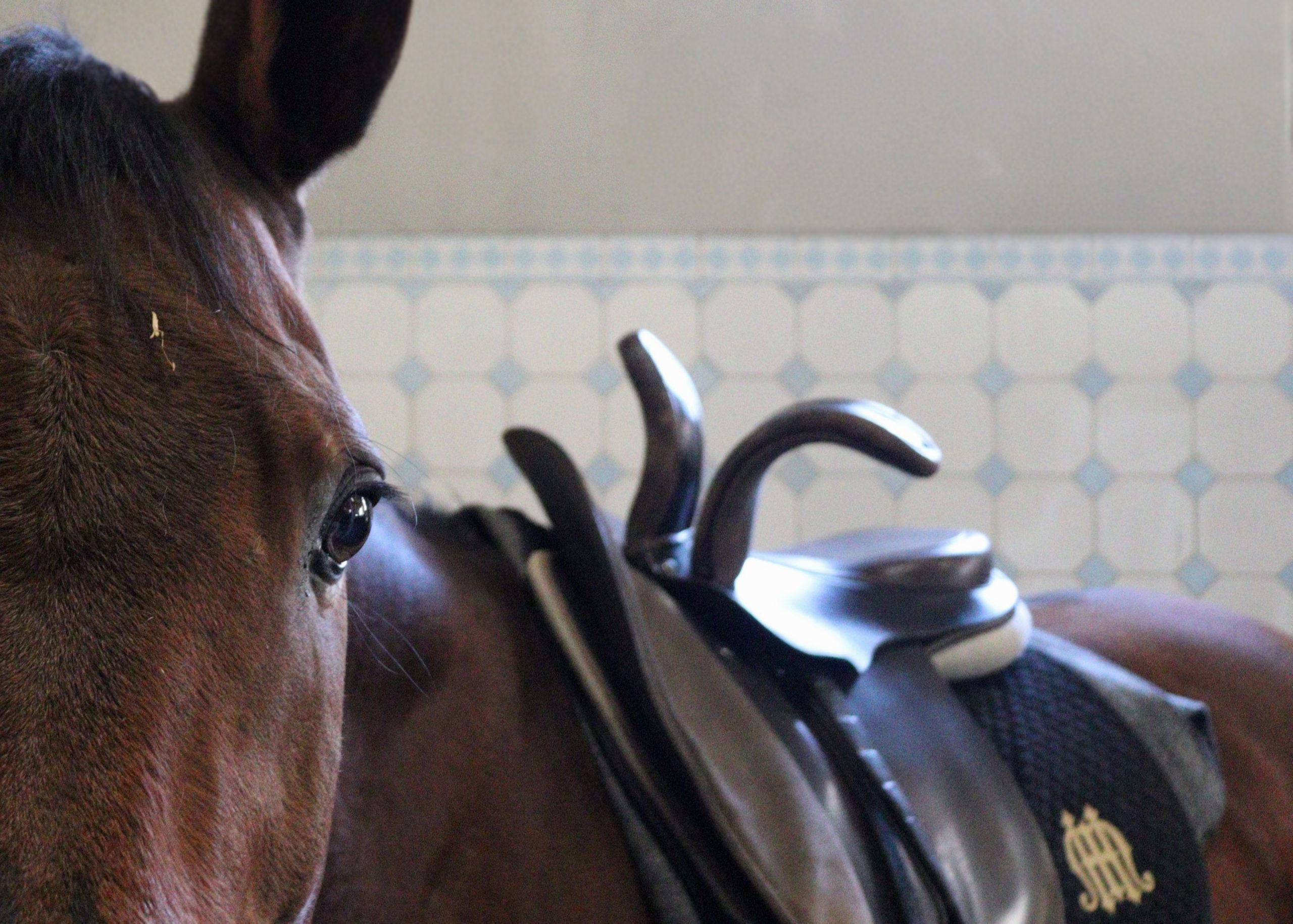
Traditional side-saddle. Camilla Rusmini.
Passionate and proud, Justus explains: ‘We are among the few left doing a lot with side-saddle, our objective is to preserve it in Europe’.
Archives in Rijksmuseum demonstrate that De Manege has long served as a cultural hub, hosting upper-middle class events like Mozart’s concert in 1766. Vincent realized the importance of this legacy, and since 2012 he expanded its role with the Living Horse Museum, carousels, and traditional dinners.
Manege’s future
Past activist attacks brought negative media attention to De Manege, questioning horses’ welfare in urban areas. This prompted renovations to improve stalls and living conditions, while creating new spaces for cultural events. During these events and summer vacations, horses are moved to paddocks outside Amsterdam. Vincent emphasizes: ‘Animal welfare must be good. It is our job to explain what we’re doing and that we are doing it good’.
New cultural events are planned annually, as Vincent says: ‘We have one Equine Art Fair yearly, hosting artist works related to horses, either paintings, sculptures, or photography’. The 2024 exhibition hosted artists from 8 different nationalities and around 800 visitors in 4 days. Occasionally, the stable is used by external organizations, as Amsterdam Dance Events and artists’ exhibitions.
This evolution is necessary to create a secure and future proof-business: ‘Maybe in 10 years people would like to see less horses in the middle of Amsterdam. We even question whether we can still ride a horse in the future’ says Justus. Yet, horses will remain the core business: ‘The government still supports having horses in the city so children can connect with animals. Maybe it doesn’t change but I want to be ready for the future, I don’t want to have one option”. Vincent agrees, stating: ‘I feel totally comfortable with that. Change can be scary sometimes. But I am not afraid’.
